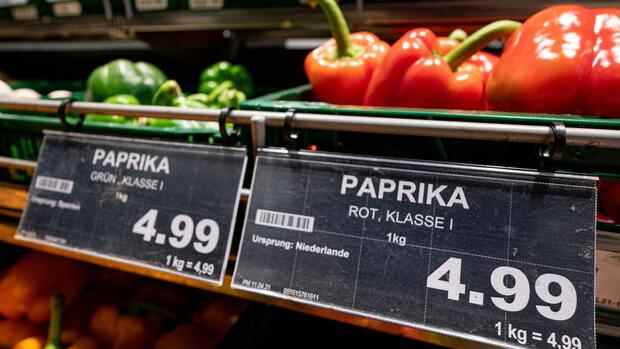The figures for January had been eagerly awaited by economists because they hoped that they would provide a little more clarity about future developments. At the beginning of the year, a number of special effects that had recently fueled inflation expired. On the other hand, certain prices, such as for natural gas, were adjusted at the beginning of the year.
Economists are controversially discussing whether the sharp rise in prices over the past year is temporary or will last longer. The US Federal Reserve recently signaled a much faster tightening of monetary policy in response to high inflation in the United States.
The European Central Bank (ECB), on the other hand, expects inflation in the euro area to weaken significantly over the course of the year. It therefore intends to stick to its loose monetary policy. In the past few weeks, however, energy prices have once again caused greater price pressure.
Top jobs of the day
Find the best jobs now and
be notified by email.
The chief economist at Dekabank, Ulrich Kater, sees the numbers as a further warning signal: “The series of negative inflation surprises is not coming to an end.” He does expect falling inflation rates over the course of the year. However, price increases would probably remain two percent throughout the year. “The longer these high inflation rates persist, the more the economy and financial markets will orient themselves to them and make inflation permanent.”
Energy again the strongest price driver
Friedrich Heinemann, economist from the Mannheim Center for European Economic Research (ZEW), takes a similar view: “The hope that inflation would drop significantly at the beginning of the year was not fulfilled.”
The higher VAT from January 2021 has now dropped from the previous year’s comparison. However, this price-dampening base effect is offset by the very strong increase in electricity, gas and petrol prices. The federal government temporarily reduced value added tax by three percentage points in the second half of 2020. As a result, inflation in the second half of 2021 was correspondingly higher compared to the very low prices in the previous year. This effect has now expired at the end of the year.
However, energy prices also rose significantly due to tensions between Russia and Ukraine. The price of a barrel of North Sea Brent rose from around 76 to over 90 dollars in January – an increase of around 18 percent.
Even before that, energy had been by far the strongest price driver. In January, it rose by 20.5 percent. In December, the increase in energy prices was still 18.5 percent. Goods prices increased by 7.2 percent, food by 5.0 percent and services by 3.0 percent.
The persistently high rise in prices is likely to fuel the debate on monetary policy ahead of the ECB’s Governing Council meeting next Thursday. The central bank is aiming for an inflation rate of two percent for the euro area in the medium term.
In view of the high inflation, the chief economist at the state-owned KfW, Fritzi Köhler-Geib, considers it crucial that the ECB “keeps an eye on the turnaround in interest rates”. The central bank must follow them consistently, taking into account the further development of inflation. Köhler-Geib expects the ECB to react more quickly to monetary policy if the additional price pressure is reflected in higher wage agreements.
More on inflation:
Should the ECB take countermeasures now?
Economists disagree as to whether and to what extent the ECB should react to fluctuations in energy prices. One danger is what are known as second-round effects, i.e. the possibility that wages will also rise as energy prices rise and that higher wages and prices will then reinforce each other.
On the other hand, energy prices, especially oil and gas prices, are subject to strong fluctuations. In the past, abrupt rises were often followed by sharp falls in prices. The question, therefore, is whether rate hikes are the right way to respond. This is because they usually affect the economy with a time lag.
In addition, the euro zone is a major importer of oil and gas. This means: If the prices for the two energy sources rise, the purchasing power of consumers falls – which slows down the economy and should therefore counteract higher inflation.
In the recent past, the ECB has largely ignored higher energy prices in its monetary policy considerations and has focused primarily on core inflation, from which energy and food prices, which are particularly susceptible to fluctuations, are calculated.
Most recently, however, ECB Director Isabel Schnabel indicated that this could possibly change. According to the central banker, the costs of converting to a climate-neutral economy could drive up energy prices and thus inflation for longer. In their view, the ECB must therefore react to rising energy prices if they lead to inflation expectations rising.
More: Not every type of household is affected in the same way – who is affected by inflation and how badly.
